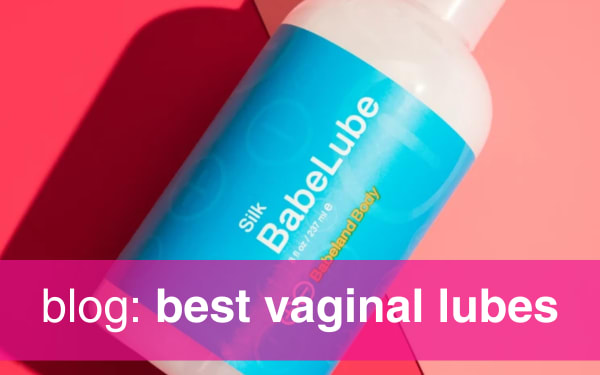
2257, a law required porn companies to spend most of their time recordkeeping to the detriment of making movies and doing photoshoots was ruled unconstitutional. I don't know yet whether it's only unconstitutional in the 6th circuit and when it goes into effect. If anyone has that information let me know. In the mean time, here's a slightly lawyerly but very clear explanation of what happened with quotes from the justices' opinions. If you need some background, check out my previous post on
2257. Also, thanks
Fleshbot and
Violet Blue for heralding the news so quickly. They both have great opinions on what the decision could mean.And now, the lawyerly stuff:2257 was struck down by a (divided) three-judge panel on the SixthCircuit Court of Appeals.The law required anyone producing porn (sex or lascivious display ofgenitals; intended for interstate transit) to keep on-site records ofthe name and age of all performers. Such records must be available tothe AG. The law, on its face, applies to both commercial andnoncommercial pr0n producers.The panel's opinion was divided; two justices (writing separately)voted to strike the statute down as overbroad (meaning, so broad itwould scare legitimate speakers out of engaging in protected speech --so broad that we won't narrow it to something constitutional). Onejustice dissented in part, saying, it is overbroad but we can narrowit to apply just to commercial speakers.Judge Kennedy voted to nix the law because it burdened a great deal ofprotected speech -- nonobscene[1] depictions of sex, made by adults --in targeting a problem (child porn) addressable through other means.The statute imposed criminal penalties, onerous record-keepingrequirements, limitations on performer anonymity, and an effective banon sexual speech by all who couldn't comply.Judge Moore concurred with Kennedy's opinion, and wrote separately tonote some other 'breadth' issues: In particular, that imposingage-verification regs on all porn swept in a lot of things notremotely confusable with child porn. (She made some charming commentsabout amateur porn made by 'swingers,' her term, noting that many aremiddle-aged and presumably hard for an FBI agent to confuse with Thai10-year-olds.) Moore appeared to suggest that a statute aimed only atperformers who, say, looked under 21 might pass muster.Judge McKeague, dissenting in part, would limit application of the lawto commercial speech, and perhaps to depictions that look like theymight involve under-21s (so no middle-aged swingers, but yes barelylegal sluts for cash).Notably, an earlier case at the Supreme Court also struck down a banon "simulated child porn" (that is, no children were harmed in themaking ...) as overbroad. Ashcroft v Free Speech Coalition, 2002 Ithink, Kennedy writing for the majority. The panel in this casedepended heavily on that opinion (for the premise that you can't goafter a large field of protected speech to get to a bit of childporn). The panel also approvingly cited a Supreme Court casedefending the right to canvas anonymously (Village of Stratton, 2002).[1] "obscene," here, is a term of art; basically, speech that: judgedby community standards appeals to the prurient interest (perviness);depicts sex in a patently offensive way; and lacks serious artistic,literary, political, or scientific merit. Not all depictions ofexplicit sex are obscene; some have serious artistic merit, e.g., orare not patently offensive in a given community.[2] The Supreme Court has recognized a right to anonymous speech,which would presumably extend to "adult" speech as well. patently offensive in a given community.[2] The Supreme Court has recognized a right to anonymous speech,which would presumably extend to "adult" speech as well.
 2257, a law required porn companies to spend most of their time recordkeeping to the detriment of making movies and doing photoshoots was ruled unconstitutional. I don't know yet whether it's only unconstitutional in the 6th circuit and when it goes into effect. If anyone has that information let me know. In the mean time, here's a slightly lawyerly but very clear explanation of what happened with quotes from the justices' opinions. If you need some background, check out my previous post on 2257. Also, thanks Fleshbot and Violet Blue for heralding the news so quickly. They both have great opinions on what the decision could mean.And now, the lawyerly stuff:2257 was struck down by a (divided) three-judge panel on the SixthCircuit Court of Appeals.The law required anyone producing porn (sex or lascivious display ofgenitals; intended for interstate transit) to keep on-site records ofthe name and age of all performers. Such records must be available tothe AG. The law, on its face, applies to both commercial andnoncommercial pr0n producers.The panel's opinion was divided; two justices (writing separately)voted to strike the statute down as overbroad (meaning, so broad itwould scare legitimate speakers out of engaging in protected speech --so broad that we won't narrow it to something constitutional). Onejustice dissented in part, saying, it is overbroad but we can narrowit to apply just to commercial speakers.Judge Kennedy voted to nix the law because it burdened a great deal ofprotected speech -- nonobscene[1] depictions of sex, made by adults --in targeting a problem (child porn) addressable through other means.The statute imposed criminal penalties, onerous record-keepingrequirements, limitations on performer anonymity, and an effective banon sexual speech by all who couldn't comply.Judge Moore concurred with Kennedy's opinion, and wrote separately tonote some other 'breadth' issues: In particular, that imposingage-verification regs on all porn swept in a lot of things notremotely confusable with child porn. (She made some charming commentsabout amateur porn made by 'swingers,' her term, noting that many aremiddle-aged and presumably hard for an FBI agent to confuse with Thai10-year-olds.) Moore appeared to suggest that a statute aimed only atperformers who, say, looked under 21 might pass muster.Judge McKeague, dissenting in part, would limit application of the lawto commercial speech, and perhaps to depictions that look like theymight involve under-21s (so no middle-aged swingers, but yes barelylegal sluts for cash).Notably, an earlier case at the Supreme Court also struck down a banon "simulated child porn" (that is, no children were harmed in themaking ...) as overbroad. Ashcroft v Free Speech Coalition, 2002 Ithink, Kennedy writing for the majority. The panel in this casedepended heavily on that opinion (for the premise that you can't goafter a large field of protected speech to get to a bit of childporn). The panel also approvingly cited a Supreme Court casedefending the right to canvas anonymously (Village of Stratton, 2002).[1] "obscene," here, is a term of art; basically, speech that: judgedby community standards appeals to the prurient interest (perviness);depicts sex in a patently offensive way; and lacks serious artistic,literary, political, or scientific merit. Not all depictions ofexplicit sex are obscene; some have serious artistic merit, e.g., orare not patently offensive in a given community.[2] The Supreme Court has recognized a right to anonymous speech,which would presumably extend to "adult" speech as well. patently offensive in a given community.[2] The Supreme Court has recognized a right to anonymous speech,which would presumably extend to "adult" speech as well.
2257, a law required porn companies to spend most of their time recordkeeping to the detriment of making movies and doing photoshoots was ruled unconstitutional. I don't know yet whether it's only unconstitutional in the 6th circuit and when it goes into effect. If anyone has that information let me know. In the mean time, here's a slightly lawyerly but very clear explanation of what happened with quotes from the justices' opinions. If you need some background, check out my previous post on 2257. Also, thanks Fleshbot and Violet Blue for heralding the news so quickly. They both have great opinions on what the decision could mean.And now, the lawyerly stuff:2257 was struck down by a (divided) three-judge panel on the SixthCircuit Court of Appeals.The law required anyone producing porn (sex or lascivious display ofgenitals; intended for interstate transit) to keep on-site records ofthe name and age of all performers. Such records must be available tothe AG. The law, on its face, applies to both commercial andnoncommercial pr0n producers.The panel's opinion was divided; two justices (writing separately)voted to strike the statute down as overbroad (meaning, so broad itwould scare legitimate speakers out of engaging in protected speech --so broad that we won't narrow it to something constitutional). Onejustice dissented in part, saying, it is overbroad but we can narrowit to apply just to commercial speakers.Judge Kennedy voted to nix the law because it burdened a great deal ofprotected speech -- nonobscene[1] depictions of sex, made by adults --in targeting a problem (child porn) addressable through other means.The statute imposed criminal penalties, onerous record-keepingrequirements, limitations on performer anonymity, and an effective banon sexual speech by all who couldn't comply.Judge Moore concurred with Kennedy's opinion, and wrote separately tonote some other 'breadth' issues: In particular, that imposingage-verification regs on all porn swept in a lot of things notremotely confusable with child porn. (She made some charming commentsabout amateur porn made by 'swingers,' her term, noting that many aremiddle-aged and presumably hard for an FBI agent to confuse with Thai10-year-olds.) Moore appeared to suggest that a statute aimed only atperformers who, say, looked under 21 might pass muster.Judge McKeague, dissenting in part, would limit application of the lawto commercial speech, and perhaps to depictions that look like theymight involve under-21s (so no middle-aged swingers, but yes barelylegal sluts for cash).Notably, an earlier case at the Supreme Court also struck down a banon "simulated child porn" (that is, no children were harmed in themaking ...) as overbroad. Ashcroft v Free Speech Coalition, 2002 Ithink, Kennedy writing for the majority. The panel in this casedepended heavily on that opinion (for the premise that you can't goafter a large field of protected speech to get to a bit of childporn). The panel also approvingly cited a Supreme Court casedefending the right to canvas anonymously (Village of Stratton, 2002).[1] "obscene," here, is a term of art; basically, speech that: judgedby community standards appeals to the prurient interest (perviness);depicts sex in a patently offensive way; and lacks serious artistic,literary, political, or scientific merit. Not all depictions ofexplicit sex are obscene; some have serious artistic merit, e.g., orare not patently offensive in a given community.[2] The Supreme Court has recognized a right to anonymous speech,which would presumably extend to "adult" speech as well. patently offensive in a given community.[2] The Supreme Court has recognized a right to anonymous speech,which would presumably extend to "adult" speech as well.








